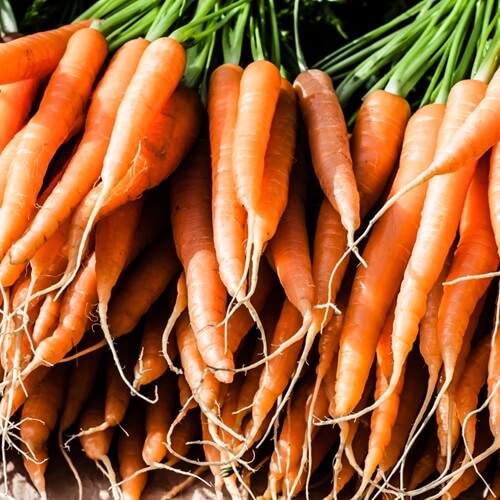Food For Strong And Healthy Vision
If you are a student taking online culinary courses, you know that maintaining good eyesight means more than staying the proper distance away from your television or computer screen. It also requires a healthy, well-balanced diet that is rich in certain vitamins. Common superfoods like blueberries and spinach have been known to decrease the risk of cancer, heart disease and diabetes. However, few people realize that antioxidants and minerals can also reduce the risk of macular degeneration, prevent cataracts from forming and actually improve eyesight. If you are tired of putting on coke-bottle glasses or know someone who is, check out these foods that help increase vision strength.
Carrots
The preferred meal of Bugs Bunny is packed with beta-carotene. Once digested, the molecule is chemically converted to vitamin A, which is known to assist in maintaining eye health. It also plays a major role in keeping your immune system and skin strong and healthy. Fully developed, non-processed carrots contain almost 5,000 milligrams of vitamin A. Baby carrots, sweet potatoes, pumpkin, spinach and other leafy greens are also packed with beta-carotene.
Broccoli
By now, you’ve probably heard every great quality of broccoli. It’s one of the most popular superfoods along with blueberries and kale. Broccoli contains large amounts of vitamin C per serving, and Vitamin C is a powerful antioxidant that helps protect eye cells from deterioration, or macular degeneration. This type of damage most often occurs in people over the age of 60 and can spur the formation of cataracts and glaucoma. Eating a half cup of broccoli each day provides you with plenty of vitamin C and will keep your vision strong.
Omega-3 fatty acids
The subgroup of polyunsaturated fats called Omega-3s is known for reducing inflammation and decreasing the risk of cardiovascular disease and stroke. Omega-3s are also important to providing structural support to cell membranes in the eyes. Great sources of omega-3s include fish such as salmon, cod, mackerel, sardines, tuna. Non-meat sources of the fatty acid include walnuts, basil, chia seeds, flaxseed oil, oregano and cloves.
Eggs
The proteins found in eggs are beneficial to the cells in the lens of your eye. They also help reduce the risk of certain eye diseases.
Spinach
While certain foods contain one or two beneficial vitamins, minerals and healing molecules, spinach has them all. In a single serving of this leafy green, you have multiple times the daily recommended dose of beta-carotene, vitamin C, antioxidents, phytonutrients and lutein. Lutein helps protect the eyes from stress caused by oxidation.


